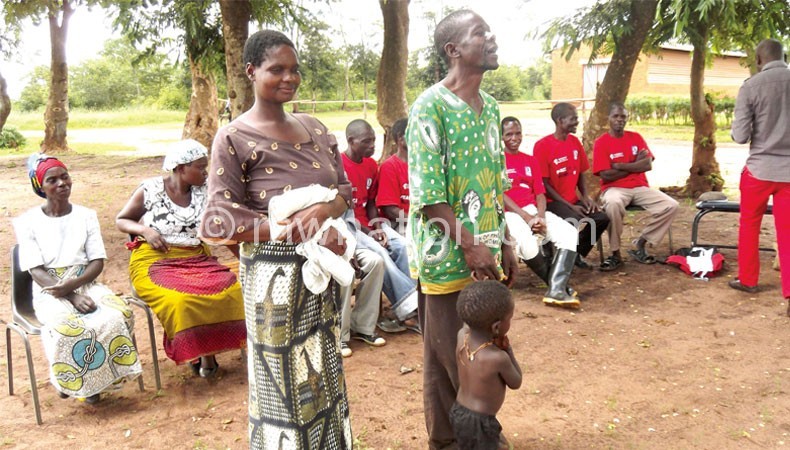When an abusive husband changes

Popularly known as ‘bambo a Gender’ (Gender’s father), Daniel Kalazi, 39, has come a long way.
From Mbewa Village in the area of Traditional Authority (T/A) Mtema in Lilongwe, Kalazi used to be among the men who abused their wives. While drinking beer on weekends, Kalazi and his friends would boast about how they would abuse their wives back home.
He married his wife, Hendrina Chiweza, in July 1994. However, it did not take long before Kalazi changed his behaviour—turning from being a loving husband to a violent one.
“My husband changed when we had our first child. He started drinking beer excessively. He could spend all the money from garden harvest on beer and extramarital affairs,” says Chiweza.
This may sound exaggerated but Kalazi is around to confess. He says he regrets for living such a life.
“I would beat up my wife even if she did not do anything wrong. I would then boast about it to my friends when we meet around beer,” confesses Kalazi.
He adds: “My friends were doing the same to update us on how they abused their wives the previous night. Those who reported not having abused their wives were laughed at and marked womanish and cowards.”
Considering the pains of gender-based violence (GBV), victims such as Chiweza see no reason of staying in marriage.
“I kept considering leaving my marriage because the mental and physical torture made it hard for me to be productive and contribute to the development of my community. However, I could not muster the courage to leave because I worried about my children,” Chiweza says.
But the good news is that Kalazi and Chiweza are now living happily together as a couple.
“Now we have a fifth baby whom we called Gender,” says Chiweza.
Today, Kalazi is a model in his village. When he narrates how he has changed, his wife cannot hold back her tears.
“I cry because when I think of the way he used to abuse me in the past, I cannot believe he is a changed man. The tears reveal my joy that my husband is no longer abusive,” says Chiweza.
Kalazi’s change of behaviour is a result of efforts by Kamthunzi Mtema Network which is advocating gender equality in the area of T/A Mtema.
Coordinator of the network Lazarus Kashoni says Kalazi’s story has helped men to reflect on their marriages.
“Many men are now realising that they have a responsibility to love their wives,” he says.
This network is one of the structures by Men for Gender Equality Now (Megen). Megen national director Marcel Chisi says through their district structures, they are fighting GBV through men. He says involving men in the fight against GBV has helped men to understand that GBV retards development.
“We are engaging men to convince their fellow men to stop GBV. In the past, the fight against GBV has been channeled to husbands through their wives. This just fueled the situation for the worse as most men in Malawi do not like to listen to their wives,” says Chisi.
Megen has created 18 district structures in which it encourages men through men groups to be responsible husbands and fathers.
Chisi says men groups have revealed that it is not only women who face GBV but also men.
“The main problem that men present here is to do with conjugal rights, but there are some men who bring cases of physical attack by their wives,” he says.
NGO Gender Coordinating Network (NGOGCN) chairperson Emma Kaliya, whose organisation is working together with Megen says the collaboration has made it easier for her and other gender activists to advocate for change in men’s perspective in gender equality issues.
“When we talk about gender equality, men are now getting the message and using it because of efforts by Megen,” says Kaliya.
The decision by Kalazi to stop to his abusive behaviour has cost him some friends.
“Some of my old friends no longer want to associate with me, saying I am not man enough. But I am not worried about that because I am now able to enjoy family time with my wife and children, and talk about our future as farmers and how we can help our children to become reliable citizens. I am also getting new friends who share my new values,” he says.
For Kashoni and his team, it is all smiles.
“Bambo a Gender
is a great example on our fight against GBV,” says Kashoni.





